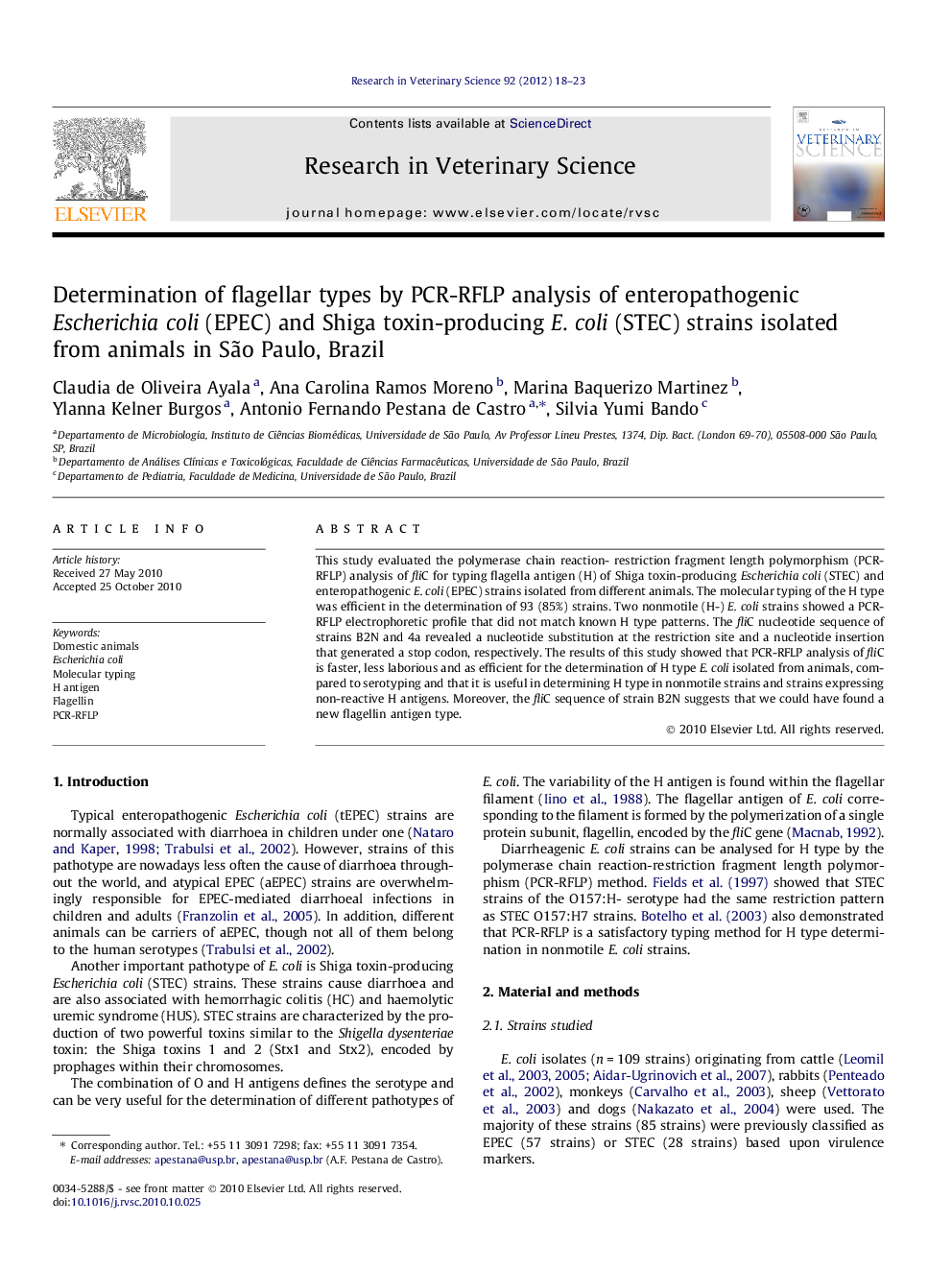| Article ID | Journal | Published Year | Pages | File Type |
|---|---|---|---|---|
| 2455276 | Research in Veterinary Science | 2012 | 6 Pages |
This study evaluated the polymerase chain reaction- restriction fragment length polymorphism (PCR-RFLP) analysis of fliC for typing flagella antigen (H) of Shiga toxin-producing Escherichia coli (STEC) and enteropathogenic E. coli (EPEC) strains isolated from different animals. The molecular typing of the H type was efficient in the determination of 93 (85%) strains. Two nonmotile (H-) E. coli strains showed a PCR-RFLP electrophoretic profile that did not match known H type patterns. The fliC nucleotide sequence of strains B2N and 4a revealed a nucleotide substitution at the restriction site and a nucleotide insertion that generated a stop codon, respectively. The results of this study showed that PCR-RFLP analysis of fliC is faster, less laborious and as efficient for the determination of H type E. coli isolated from animals, compared to serotyping and that it is useful in determining H type in nonmotile strains and strains expressing non-reactive H antigens. Moreover, the fliC sequence of strain B2N suggests that we could have found a new flagellin antigen type.
